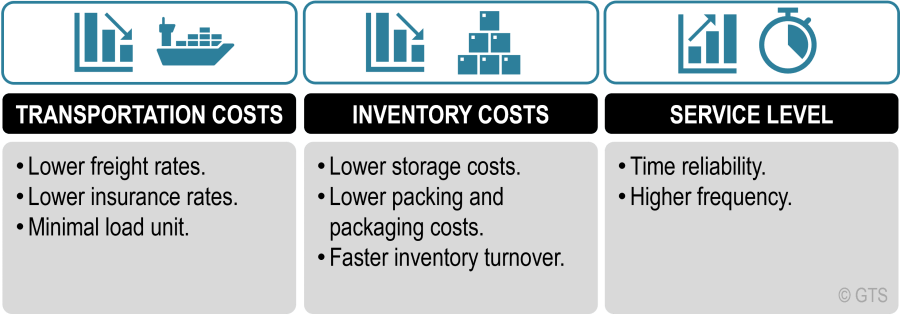
The benefits of containerization take place over three main dimensions:
- Transport costs. They are jointly the outcome of lower transshipment costs and economies of scale applied to maritime shipping and terminal operations. The principle of economies of scale has been particularly prevalent in containerized shipping, resulting in reductions in unit costs. Since containerized cargo is subject to less damage and lower theft levels, insurance rates are generally lower. Another significant benefit is that the container itself becomes the minimal load unit, implying that a wider range of exporters and importers can access international markets as the minimal entry unit, a single container load, becomes affordable.
- Inventory costs. A container is its own storage unit, implying that warehousing is blurred and therefore takes place during transport, at the terminal, and the warehouse. Packing (stuffing) costs are reduced as well as the packaging of the goods being carried. All of this is linked with faster levels of inventory turnover and cash flow.
- Service level. Containerized transport chains tend to be more reliable since the modes involved are more consistent in their service timeframe. Intermodal operations are much faster, implying that the same assets can be used more frequently. Therefore, containerized services have a higher frequency, facilitating supply chain management.
Although these benefits mainly concern breakbulk cargo, some bulk cargo has also benefited from the advantages of containerization (coffee, grain).